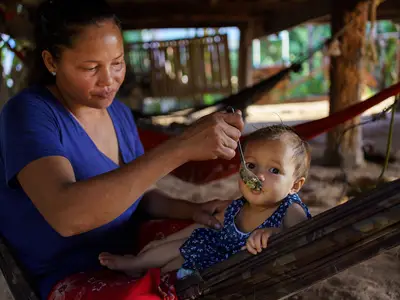Managing resources for food production amid environmental changes
We help private- and public-sector clients identify cost-effective strategies for investing in sustainable strategies for agriculture and land use. A significant challenge in moving these strategies forward is determining the impact they might have on the environment, human welfare, food supply, and the economy.
We draw on our expertise in environmental science to develop models that account for the complicated and interrelated nature of climate challenges and improve the value of investments in sustainable agriculture. Our expertise in adaptation and mitigation analytics for the agricultural sector includes low- emission development strategies, emission inventories, water resource management, and vulnerability assessment.
Related Projects
Integrating climate risk into global agri-food system decision-making
Read More about Integrating climate risk into global agri-food system decision-making





















